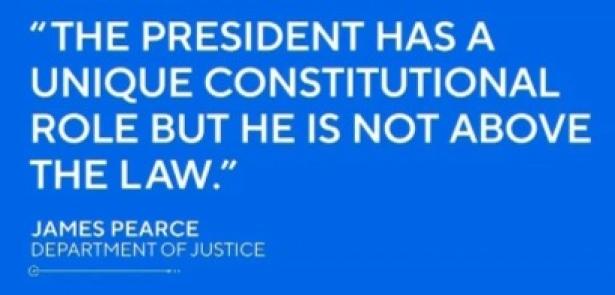The Supreme Court is caught in a crisis of its own making.
There is the gross corruption of Justice Clarence Thomas and Justice Samuel Alito, who have received millions of dollars in gifts and benefits from various billionaire benefactors.
There is the court’s open assault on the basic rights of tens of millions of Americans, exemplified in its decision to overturn the constitutional right to an abortion on the basis of a vague and inconsistent standard of “text, history and tradition.”
And there is the hubris of Chief Justice Roberts, who, the legal scholar Eric J. Segall writes, has “led the court to coerce both state and federal governments to abide by his personal preferences, whether or not positive legal sources supported those decisions and at times even when prior law quite clearly did not justify the chief’s opinions and votes.”
It is a testament to Roberts’s skill as a politician that he is often viewed as a modest and moderate judicial institutionalist when, in fact, he has used his position on the court to spearhead a remarkable campaign of judicial activism. In cases like Shelby County v. Holder in 2013 and the more recent West Virginia v. E.P.A., Roberts all but deployed novel constitutional doctrines (“equal state sovereignty” and the “major questions doctrine”) to achieve his preferred results. In just the last term, the Roberts court has rewritten the 14th Amendment to keep Donald Trump on the presidential ballot as well as radically expanded presidential power in direct contravention of the history, text and structure of the Constitution.
We have, in other words, a corrupt and lawless court that, led by its conservative majority, has put itself above the constitutional system as the exclusive arbiter of constitutional meaning. The Constitution means whatever the Roberts court says it means, even when that meaning conflicts with the basic principles of American democracy.
It is against this backdrop of institutional dysfunction and judicial arrogance that President Biden, fresh from his decision to leave the campaign trail in favor of his vice president, introduced his three-point package of Supreme Court reforms.
“What is happening now is not normal, and it undermines the public’s confidence in the court’s decisions, including those impacting personal freedoms,” Biden writes in an essay for The Washington Post announcing the plan. “We can and must prevent the abuse of presidential power. We can and must restore the public’s faith in the Supreme Court. We can and must strengthen the guardrails of democracy.”
Biden is asking Congress to impose new ethics rules on the court, to deal with corruption. “Justices should be required to disclose gifts, refrain from public political activity and recuse themselves from cases in which they or their spouses have financial or other conflicts of interest,” he writes. He is calling for a system of term limits in which “the president would appoint a justice every two years to spend 18 years in active service on the Supreme Court.”
The idea is to prevent the gamesmanship that Republicans used to place Neil Gorsuch and Amy Coney Barrett on the court as well as to preclude the strategic retirements that Republican-aligned justices have used to pass their seats along to a co-partisan, as Anthony Kennedy did in 2018 when he retired and pushed Brett Kavanaugh as his replacement.
Finally, Biden wants Congress and the American public to ratify a new constitutional amendment overturning the Supreme Court’s decision in Trump v. United States, which all but put the president above the law by shielding him from criminal prosecution for illegal actions in office so long as they were “official acts” — as defined by the court, naturally.
Biden did not endorse Supreme Court expansion, which would be the fastest way to rebalance the court. Nor did he call for any reorganization or expansion of the larger federal judiciary, to dilute the destructive influence of Trump’s judges on the bench.
Still, Biden’s proposal is worthwhile. Not because there is a good chance of it becoming law — important constitutional questions aside, there is almost no chance that Democrats could elect the overwhelming congressional majorities needed to pass the package into law — but because it represents something almost novel in contemporary American politics: a willingness to challenge the Supreme Court as a political entity and to offer, in response, an alternative constitutional vision.
Biden’s proposal is a declaration that the court is wrong about the Constitution, that it has abused its power and influence and that it needs to be checked and balanced. He is, of course, far from the first president to do this — Abraham Lincoln and Franklin Roosevelt come to mind — but he is the first modern Democratic president to recognize that the court as constituted is a major obstacle to the party’s ability to govern in accordance with its popular mandate.
Whether or not Biden’s reform plan can pass, it is important that he has planted a flag in opposition to the Supreme Court — a marker for the next generation of Democrats to work from. And Vice President Kamala Harris, as the Democrats’ de facto presidential nominee, has already said that she will pick up the standard if elected in November.“There is a clear crisis of confidence facing the Supreme Court as its fairness has been called into question after numerous ethics scandals and decision after decision overturning longstanding precedent,” Harris said after the release of Biden’s plan. “These popular reforms will help to restore confidence in the court, strengthen our democracy and ensure no one is above the law.”


Spread the word